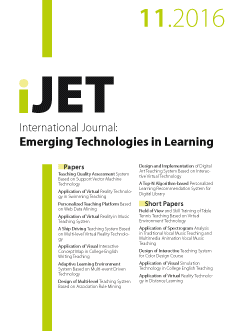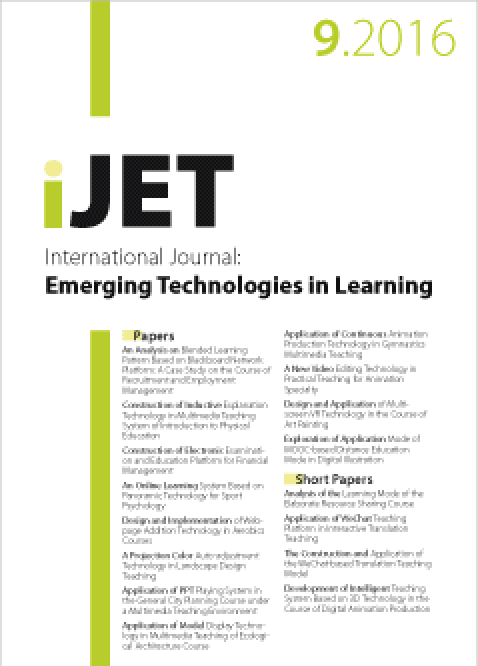 Issue 12(04) of our journal on emerging technologies for learning got published. Enjoy the readings as usual for free :-).
Issue 12(04) of our journal on emerging technologies for learning got published. Enjoy the readings as usual for free :-).
Table of Contents:
- Teaching „Information Systems Management“ with Moodle
- „All for One and One for All“- Creating a Mobile Learning Net for ESP Students‘ Needs
- An Investigation into the Role of Tablet Devices in Facilitating Collaborative Learning in EFL Language Course
- Design and Practice of Surveying Experiment System based on a Virtual Platform
- A Novel Authentication Scheme for E-assessments Based on Student Behavior over E-learning Platform
- Debugging Tool to Learn Algorithms: A Case Study Minimal Spanning Tree
- AICTs and Music in Generic Learning Disabilities
- Rule-based Cognitive Modeling and Model Tracing in a Math Story Problem Tutor
- Factors Supporting an Information Technology Management : Teachers in Primary Schools in Thailand
- Design and Implementation of a Multimedia-based Technology Solution to Assist Children with Intellectual Disability to Learn
- An Efficient E-Exam Scheme
- ssessing Collaborative Problem Solving Skills in Technology-Enhanced Learning Environments – The PISA Framework and Modes of Communication
- Software Solution Improving Productivity and Quality for Big Volume Students‘ Group Assessment Process
- Teaching Experience on Faculty Members’ Perceptions about the Attributes of Open Educational Resources (OER)
- Design of Education Application based on Shiva 3D Platform
- Cooperative Learning Web Application for Water Care in Colombia – Manglar: Actor-Network Theory Software Solution
Nevertheless, if you are interested to become a reviewer for the journal, please just contact me :-).



